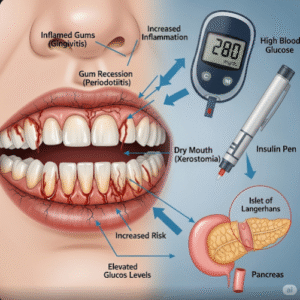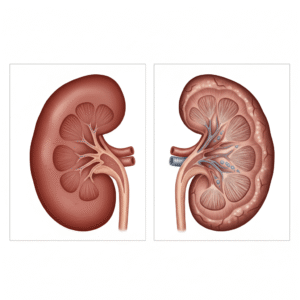Overview
Miliary tuberculosis (TB) is a rare but serious form of tuberculosis that occurs when Mycobacterium tuberculosis spreads through the bloodstream to multiple organs. In South Korea, TB remains a significant public health issue compared to other developed nations, though national TB control programs have reduced incidence rates. Miliary TB is more often diagnosed in immunocompromised patients, the elderly, or those with delayed treatment of pulmonary TB. With advanced diagnostic tools and access to top-tier medical facilities, patients in Korea can receive comprehensive care for this condition.
What is Miliary Tuberculosis?
Miliary tuberculosis is a disseminated form of TB, where tiny nodules resembling millet seeds (hence the name) appear throughout the lungs and sometimes other organs such as the liver, spleen, bone marrow, and brain. It represents widespread infection due to hematogenous (bloodstream) spread of Mycobacterium tuberculosis.
Symptoms
- Persistent fever and night sweats
- Chronic cough, sometimes with sputum
- Shortness of breath
- Unexplained weight loss
- Fatigue and weakness
- Enlarged liver or spleen
- Headache, confusion, or neurological signs (if the brain is affected)
Causes
- Caused by Mycobacterium tuberculosis bacteria
- Results from hematogenous dissemination of TB from the lungs or another site
- Often develops due to delayed diagnosis or inadequate treatment of TB
Risk Factors
- Weakened immune system (HIV, long-term steroid use, chemotherapy)
- Malnutrition
- Chronic illnesses such as diabetes or kidney disease
- Elderly patients with reduced immunity
- History of untreated or partially treated pulmonary TB
Complications
- Respiratory failure due to extensive lung involvement
- Meningitis if the infection spreads to the brain
- Multi-organ failure (liver, spleen, kidneys)
- Severe weight loss and weakness
- Death if untreated or diagnosed late
Prevention
- BCG vaccination, widely given in Korea, helps prevent severe forms of childhood TB
- Early diagnosis and complete treatment of pulmonary TB to prevent dissemination
- Regular screening of high-risk groups (immunocompromised, elderly)
- Public health measures in Korea, including contact tracing, free TB screening, and national TB programs
Treatment Options in Korea
South Korea has a robust TB management system, supported by both public health initiatives and advanced hospital care.
- Diagnosis
- Chest X-ray or CT scan showing “miliary” nodules
- Sputum smear and culture for Mycobacterium tuberculosis
- Blood tests, including TB PCR and interferon-gamma release assays
- Biopsy of affected organs in rare cases
- Lumbar puncture if TB meningitis is suspected
- Medical Treatment
- Standard anti-tuberculosis therapy (ATT): usually a combination of isoniazid, rifampicin, pyrazinamide, and ethambutol for at least 6–12 months
- Corticosteroids may be added if there is meningeal or severe systemic involvement
- Supportive care for organ-specific complications
- Specialized Care in Korea
- Samsung Medical Center: advanced infectious disease department and TB clinics
- Asan Medical Center: multidisciplinary TB management including drug-resistant TB treatment
- Seoul National University Hospital (SNUH): cutting-edge diagnostics and long-term monitoring of complex TB cases
- National Medical Center: Korea’s central TB hospital with strong government-supported programs
- Follow-Up Care
- Regular monitoring to ensure drug compliance and avoid resistance
- Imaging follow-up to check for resolution of nodules
- Nutritional support and management of drug side effects
- Ongoing care for high-risk patients to prevent recurrence













